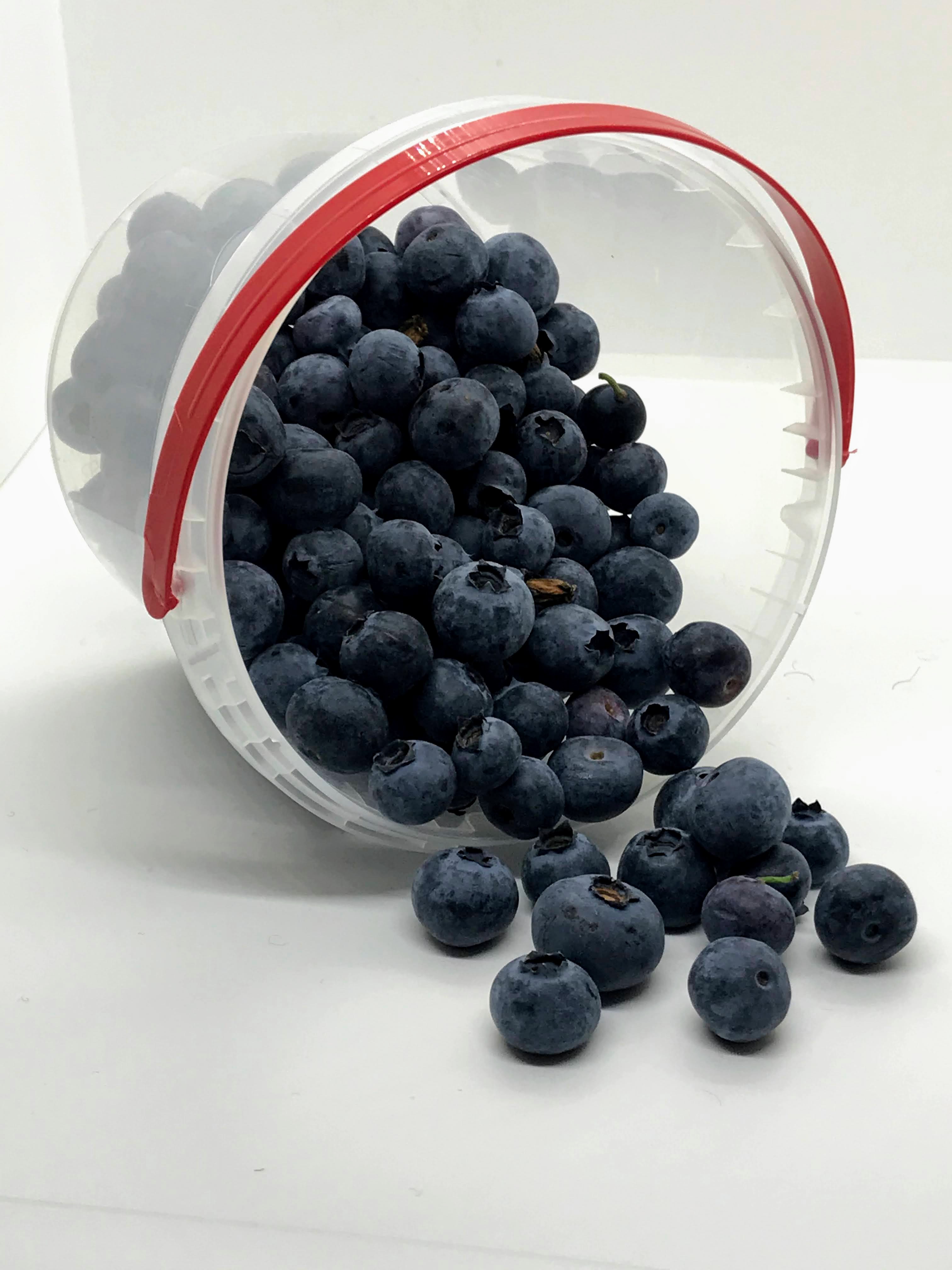In the summer months, from June to August, over 5,000 people, mostly poor farmers, travel from Thailand to Scandinavia to pick wild berries in the northern forests. The media have repeatedly reported on the vulnerability of Thai berry pickers when it comes to living and working conditions, as well as economic compensation. Yet, despite this vulnerable situation, the number of seasonal workers is increasing, and many of them return year after year.
SWEDEN, THOUSANDS OF THAIS ARRIVE EVERY YEAR
The forests in Sweden are full of wild blueberries , red blueberries and cloudberries (camemoro) that grow wild, but the harvesting and sorting of these fruits involves hard work. And the Swedes are no longer willing to harvest these berries and depend on migrant workers from a country more than 8,000 km away, Thailand.
Thais usually go to Sweden to work as berry pickers on Nordic farms from July to September each year. Every year, about 5,000 berry pickers travel to Sweden to collect wild berries, mainly in rural areas of the country.
Despite the short berry harvesting season, a berry picker working in Sweden can earn about US$4,000 (RM16,800) for just under three months' work - a far higher sum than he can earn in Thailand. But it all depends on the harvest.
Labour costs for berry picking are relatively high in this short season. It may take a berry picker just under two months to earn the costs incurred in travelling to Sweden, and the rest of the money is brought back to Thailand. Costs include fees paid to Thai employment agencies, accommodation, food and transport to berry-picking sites. Is it worth it for a Thai berry picker to travel to Sweden?
Despite all these costs, staying in Sweden can still be worthwhile for the average Thai berry picker, who could return to Thailand with a saving of US$2,000 (RM8,400) for a season in Sweden if the harvest goes well. For the Thai worker, this is a decent income as it is about three times what an average worker in Thailand would earn in the same period. The most diligent berry picker could earn up to 12 times more than he would earn in Thailand.

On average, Thai workers went to Sweden about seven times, but the most frequent worker went over 26 times. They use their earnings to help finance their daily needs, agricultural investments, housing costs and their children's education.

Obviously, berry picking is not a job that Swedes enjoy, but for temporary foreign workers, the job could be more lucrative than working in the stifling paddy fields at home. These Thai workers are paid per kilogram and expect a good harvest to make their work and stay in Sweden meaningful. A lot depends on how much they can harvest.
Thai berry pickers go to Sweden, and this arrangement seems to suit both sides: the berry season in Sweden falls at a suitable time in the Thai paddy rice growing season. The workers only have to spend a relatively short time away from their families.

Thai employment agencies and Swedish berry companies provide opportunities for Thai workers to earn this extra income, which comes in handy to supplement the future needs of their children. Some experienced berry pickers use their social networks to travel to Sweden and set up a cooperative. In this way, costs are reduced.
Like other foreign workers, Thai berry pickers who come to Sweden to work pay taxes to the Swedish government. But a new special income tax for short-term foreign workers in Sweden could affect Thai berry pick ers who travel here to work. Those who work here for less than six months are taxed according to the Special Income Tax Act for non-residents: the employer deducts 25% of the workers' earnings. Alternatively, the Thai worker can be taxed under the normal income tax rules.

HOW COLLECTORS ARE PAID
There are two forms of payment in the Swedish wild berry industry. The first form of payment is on a piece rate, which means that the wild berry pickers receive a certain amount for each kilo of wild berries they harvest. The price is set on the world market and consequently varies considerably from one season to the next. In recent years, the world market price has been declining as a result of an increase in the global supply of berries and growing competition in the sector.
Piecework payment represents both an opportunity and a risk for workers in the wild berry industry who may return with a substantial profit if the wild berry season is good or with little profit, or even with debt, if the wild berry season is poor or the world market price is low. Until 2010, payment by the piece was standard industry practice.
The piece-rate payment resulted in substantial losses for many Thai wild berry pickers in 2009, for example. This led to the introduction of a guaranteed minimum wage in 2010, when non-EEA wild berry pickers were included in the Agreement on Agriculture (sw. Jordbruksavtalet). Since 2010, berry pickers from Thailand and other non-EEA countries have therefore been entitled to a monthly wage equivalent to the minimum wage in the Agreement on Agriculture.
FINLAND, 15 YEARS' SALARY IN TWO MONTHS
The Covid-19 outbreak among a group of Thai berry pickers in August in Finland was a cause for concern, but overall the summer season was good, at least from the point of view of the Thai berry pickers who managed to earn what would have been a years' income in their home country of Thailand.
According to YLE, during their two-and-a-half month contract to pick berries in Finland, some Thai pickers earned what is equivalent to fifteen years' income in Thailand.
Jukka Kristo, managing director of the Finnish berry company Polarica, confirms that his company's top pickers have a net income of 12,000 euros on their cards, with an average of just under 4,000 euros net.

"The annual income in the farmer segment in Thailand is around €800, and when it comes to an average net income of just under €4,000, it's big. And for those whose earnings are closer to 12,000 euros, it is so big that the pickers can do many things for their family - with these two and a half months of earnings." says Jukka Kristo.
A large number of Thai berry pickers who come to Finland work in agriculture and mainly on rice plantations in Thailand, where the income level is very low. 12,000 euros corresponds to 15 years' salary for rice cultivation, he adds.
Polarica had 1,150 Thai harvesters in Finland this season and the Finnish berry harvest season is suitable for Thai harvesters as rice plantations in Thailand do not need labour during the rainy season from July to September. When the berry season in Finland ends in early October, the rice harvest will begin in Thailand.
Thai pickers are used to hard work and usually work long hours. The day usually starts at six in the morning and ends around nine in the evening. Berry processors always strive to keep their pickers in the most profitable locations for berries, so it is in the interest of both the company and the pickers that they move with the harvest.

This year, for the first time, the agreement with the berry companies included a legally guaranteed salary for the pickers, but only a few of them relied on it, according to the companies.
According to Jukka Kristo, the year as a whole was "just OK". The harvest of blueberries was a question mark before the start of the season, but the moisture in early June meant that the harvest continued for a historically long time.
Sources:
Aliran - Sweden's annual reliance on Thai berry pickers
Scandasia - Some Thai berry pickers earned what equals 15 years salary during the season in Finland
Delmi: Thai berry pickers in Sweden - A migration corridor to a low-wage sector
TO GO DEEPER:








